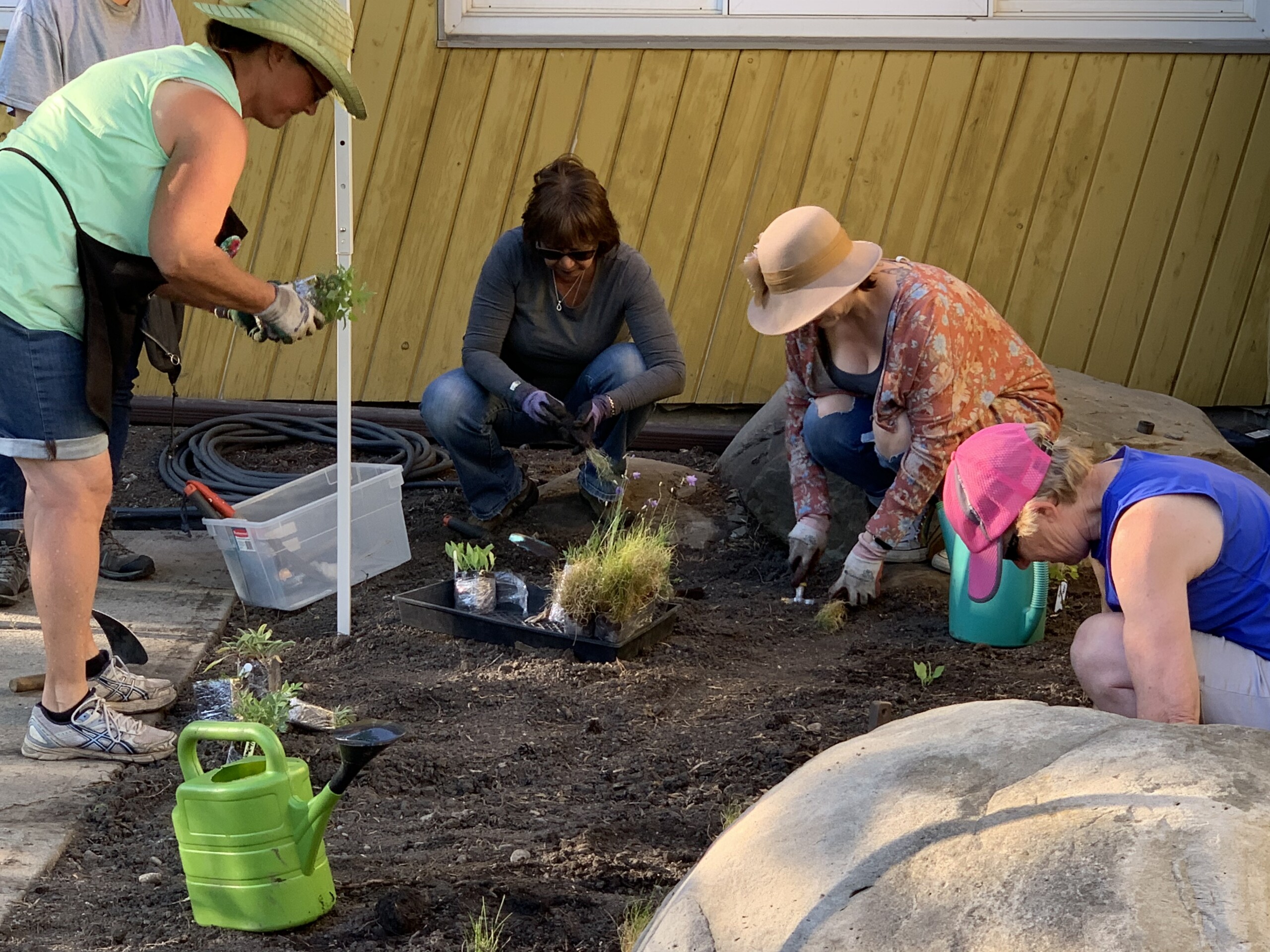Build your prairie garden

Photo by Deborah Maier
Spring on the prairies is beautiful. Interspersed along clumps of tall and short grasses that undulate in the breeze are bright yellow, pink, and blue blossoms.
Then, as the seasons change, the grasses change colour and the flower colour palette moves to more golden hues. It is a vista with lots of beauty and no gardener intervention. So, have you ever considered mimicking the prairie landscape in your yard?
The Calgary Horticultural Society’s move to Richmond Green last year provided an opportunity to install new gardens. However, the garden area at the back and west side of the building was overgrown with mugo pine in poor condition.
After its removal, the garden area was revealed to have poor-quality dry soil, that baked in the afternoon sun. Staff at the Society knew they wanted to plant a demonstration garden based on a YardSmart garden bed design guide, but which one? There are five guides created by the Society in partnership with The City of Calgary: full sun, partial sun, shade, wet area, and native plants.
The location easily ruled out the designs for a moist area and shade. Perhaps, partial shade? The space was shaded in the morning, but partial shade plants prefer protection from the intense afternoon sun, so the partial shade garden was also inappropriate for the space. Was it a full sun garden area? Not really.
The design’s full-sun plants like to be out in the open and prefer well-drained soils that retain some moisture. This area is sheltered to the east and north by the building’s walls creating a rain shadow and heat sink. Full sun plants can be drought-tolerant, but this space is a bit beyond their capacity.
So, which plants put down extremely deep roots as an adaptation to prolonged dry conditions?
Prairie plants!
It was mid-May when the decision was made to install a demonstration garden following the YardSmart Design – Garden Bed for Native Wildflowers. This was too late to start the plants from seed as many native plants need cold stratification (a simulation of winter) to germinate. Purchasing plants that were started by someone else was the answer. While local garden centres carry some native plants, they are not common. However, the Calgary area has native plant nurseries that specialize in growing our prairie plants. They grow them for restoration projects and for gardeners.
These nurseries, like other garden centres quickly sell out of stock in the spring, but the Society was able to acquire many of the plants in the guide for the garden.
The flowers in the design provide seasonal colour and food for native pollinators. They are prairie crocus, prairie smoke, buffalo bean, blanket flower, beebalm, harebell, aster, sticky purple geranium, smooth beard tongue, silver lupine, and stiff golden rod.
Seasonal texture and vertical interest are provided by the golden currant shrub, and grasses Rocky Mountain fescue and little blue stem. A suite of plants that when interplanted captures the prairie landscape.
For anyone who wants to try growing a prairie garden, here are a few tips to get you started. Start planning in the fall so you can start from seed or have a nursery grow the plants you want. Remember that even drought-tolerant plants need to become established before they can tolerate extreme conditions, so you will have to water throughout the first growing season.
If you are planting plugs, clean some of the soil off the roots and gently spread them apart so the roots come in direct contact with your garden soil, encouraging outward growth. Water the plug in the hole before covering it with soil.
This method prevents surface evaporation from wicking moisture away from the roots. Give the plants the space recommended in the guide and have patience. Unlike planting mature plants or annuals, it will take at least a season before there is much of a show.
Some of the first flowers should be up this month in the Society’s garden but we expect to have a fuller display in June. If you are interested in planting a prairie native plant garden, join us on June 3 for the official opening of the demonstration garden at our Be YardSmart event. In the afternoon, Elaine Rude, the garden designer, will be there to talk about her design and answer questions. Of course, you are welcome to visit the garden at any time.
To learn more about gardening in the Calgary area, visit the Society’s website calhort.org.
